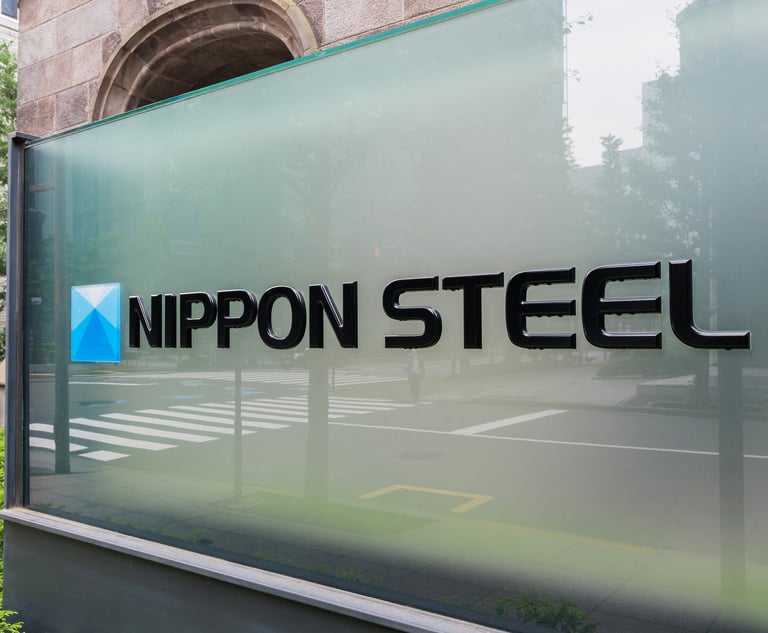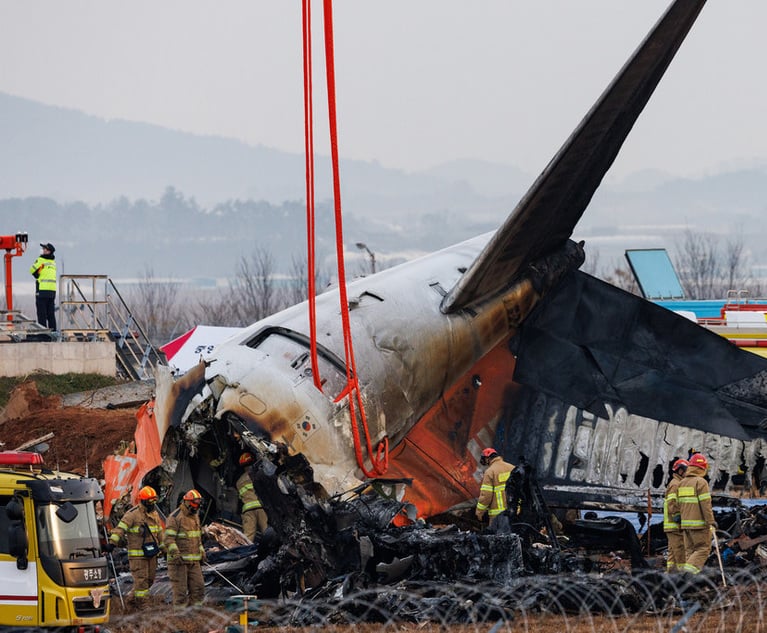Leveson publishes costs to date: £625k to barristers from £2m total
The Leveson Inquiry has spent more than half a million pounds of taxpayers' money on barristers since the public inquiry into press regulation launched six months ago. The bulk of the legal fees (£536,100) spent between July 2011 and 31 January 2012 have gone to the core counsel on the inquiry - 39 Essex Street's Robert Jay QC, Temple Garden Chambers' David Barr and Carine Patry Hoskins of Landmark Chambers.
March 13, 2012 at 05:44 AM
3 minute read
The Leveson Inquiry has spent more than half a million pounds of public funds on barristers' fees since the inquiry into media standards launched six months ago.
The bulk of the legal fees (£536,100) spent between July 2011 and 31 January 2012 have gone to the core counsel on the inquiry – 39 Essex Street's Robert Jay QC (pictured), Temple Garden Chambers' David Barr and Carine Patry Hoskins of Landmark Chambers.
Some of the fees have also gone to 5 Essex Court's Lucinda Boon, who joined the team of counsel more recently.
The inquiry has also spent an additional £89,500 on a team of more junior barristers assisting counsel, taking total fees to barristers over the six month period to £625,600.
Details of the legal fees are contained in a quarterly expenditure report published on the Leveson Inquiry's website, which shows that the total costs of the Inquiry to date have reached £1.99m.
Fees paid out to individual barristers are not disclosed in the report, but a spokesman confirmed individual rates are in accordance with the Attorney General's panel of counsel. According to these rates, the four barristers are being paid between £100 to £280 per hour depending on seniority.
Lord Justice Leveson is not paid directly by the inquiry, and is instead receiving his £196,707 salary from his existing employment as a judge, but the inquiry has paid £82,000 for other judges to take his place in the Court of Appeal in his absence.
The assessors advising Leveson – which include the former political editor of the Daily Telegraph, George Jones, and former Financial Times chief executive Sir David Bell – have been paid £67,500, of which £44,700 was paid out in the past three months.
Overall, the inquiry had run up a bill of £855,000 from July to the end of October. That figure increased by £1.1m in November, December and January when the regular public hearings began.
The news comes after it emerged last week the Press Complaints Commission (PCC) is to be shut down amid the ongoing inquiry.
The PCC, which was first established in 1991 to enable non-statutory self-regulation of the press, has come under intense fire in the wake of the phone-hacking scandal, but the news of the shutdown has been questioned by some City media lawyers given that it comes ahead of Leveson's findings, which are due to be published in October.
For more, see Lawyers question timing of PCC shutdown as Leveson rumbles on.
- Click here for the Leveson expenses report
This content has been archived. It is available through our partners, LexisNexis® and Bloomberg Law.
To view this content, please continue to their sites.
Not a Lexis Subscriber?
Subscribe Now
Not a Bloomberg Law Subscriber?
Subscribe Now
NOT FOR REPRINT
© 2025 ALM Global, LLC, All Rights Reserved. Request academic re-use from www.copyright.com. All other uses, submit a request to [email protected]. For more information visit Asset & Logo Licensing.
You Might Like
View All
Milbank, Wachtell, Ropes and Pittsburgh Duo Aim to Save Nippon Steel's US Steel Merger


Aviation Attorney and Pilot Analyzes Jeju Air Crash, Potential Litigation Issues
Trending Stories
- 1How Law Schools Fared on California's July 2024 Bar Exam
- 2'Discordant Dots': Why Phila. Zantac Judge Rejected Bid for His Recusal
- 3Here's What Corporate Litigators Expect Del. Courts to Address in 2025
- 4U.S. Supreme Court Has No Jurisdiction Over Trump's New York Criminal Case: Prosecutors
- 5The Law Firm Disrupted: With KPMG's Proposed Entry, Arizona's Liberalized Legal Market is Getting Interesting
Who Got The Work
Michael G. Bongiorno, Andrew Scott Dulberg and Elizabeth E. Driscoll from Wilmer Cutler Pickering Hale and Dorr have stepped in to represent Symbotic Inc., an A.I.-enabled technology platform that focuses on increasing supply chain efficiency, and other defendants in a pending shareholder derivative lawsuit. The case, filed Oct. 2 in Massachusetts District Court by the Brown Law Firm on behalf of Stephen Austen, accuses certain officers and directors of misleading investors in regard to Symbotic's potential for margin growth by failing to disclose that the company was not equipped to timely deploy its systems or manage expenses through project delays. The case, assigned to U.S. District Judge Nathaniel M. Gorton, is 1:24-cv-12522, Austen v. Cohen et al.
Who Got The Work
Edmund Polubinski and Marie Killmond of Davis Polk & Wardwell have entered appearances for data platform software development company MongoDB and other defendants in a pending shareholder derivative lawsuit. The action, filed Oct. 7 in New York Southern District Court by the Brown Law Firm, accuses the company's directors and/or officers of falsely expressing confidence in the company’s restructuring of its sales incentive plan and downplaying the severity of decreases in its upfront commitments. The case is 1:24-cv-07594, Roy v. Ittycheria et al.
Who Got The Work
Amy O. Bruchs and Kurt F. Ellison of Michael Best & Friedrich have entered appearances for Epic Systems Corp. in a pending employment discrimination lawsuit. The suit was filed Sept. 7 in Wisconsin Western District Court by Levine Eisberner LLC and Siri & Glimstad on behalf of a project manager who claims that he was wrongfully terminated after applying for a religious exemption to the defendant's COVID-19 vaccine mandate. The case, assigned to U.S. Magistrate Judge Anita Marie Boor, is 3:24-cv-00630, Secker, Nathan v. Epic Systems Corporation.
Who Got The Work
David X. Sullivan, Thomas J. Finn and Gregory A. Hall from McCarter & English have entered appearances for Sunrun Installation Services in a pending civil rights lawsuit. The complaint was filed Sept. 4 in Connecticut District Court by attorney Robert M. Berke on behalf of former employee George Edward Steins, who was arrested and charged with employing an unregistered home improvement salesperson. The complaint alleges that had Sunrun informed the Connecticut Department of Consumer Protection that the plaintiff's employment had ended in 2017 and that he no longer held Sunrun's home improvement contractor license, he would not have been hit with charges, which were dismissed in May 2024. The case, assigned to U.S. District Judge Jeffrey A. Meyer, is 3:24-cv-01423, Steins v. Sunrun, Inc. et al.
Who Got The Work
Greenberg Traurig shareholder Joshua L. Raskin has entered an appearance for boohoo.com UK Ltd. in a pending patent infringement lawsuit. The suit, filed Sept. 3 in Texas Eastern District Court by Rozier Hardt McDonough on behalf of Alto Dynamics, asserts five patents related to an online shopping platform. The case, assigned to U.S. District Judge Rodney Gilstrap, is 2:24-cv-00719, Alto Dynamics, LLC v. boohoo.com UK Limited.
Featured Firms
Law Offices of Gary Martin Hays & Associates, P.C.
(470) 294-1674
Law Offices of Mark E. Salomone
(857) 444-6468
Smith & Hassler
(713) 739-1250








